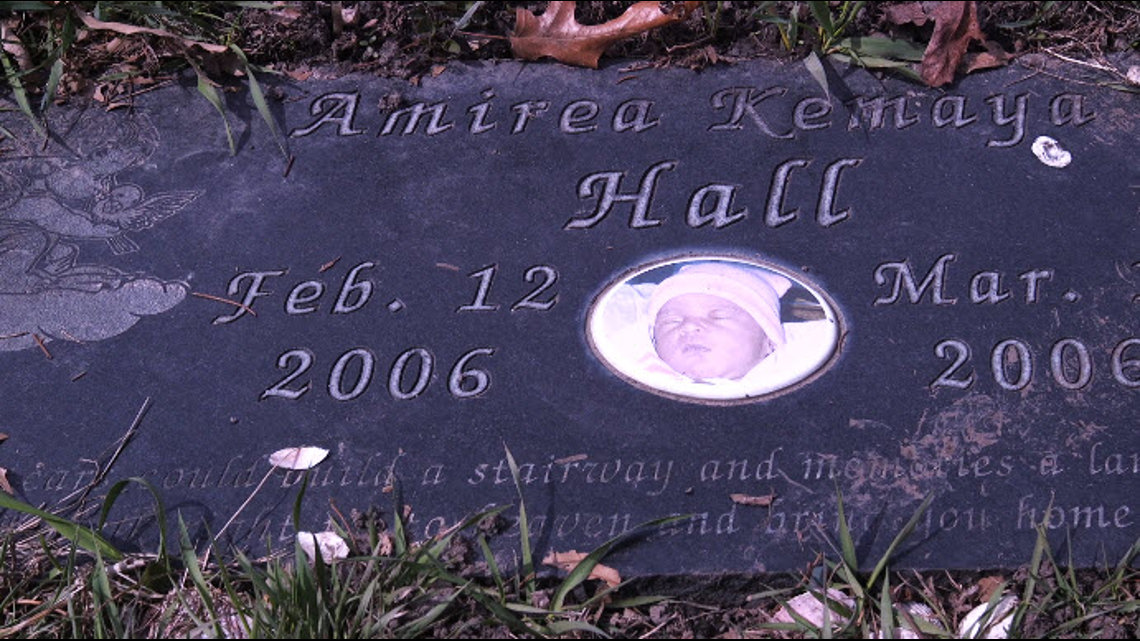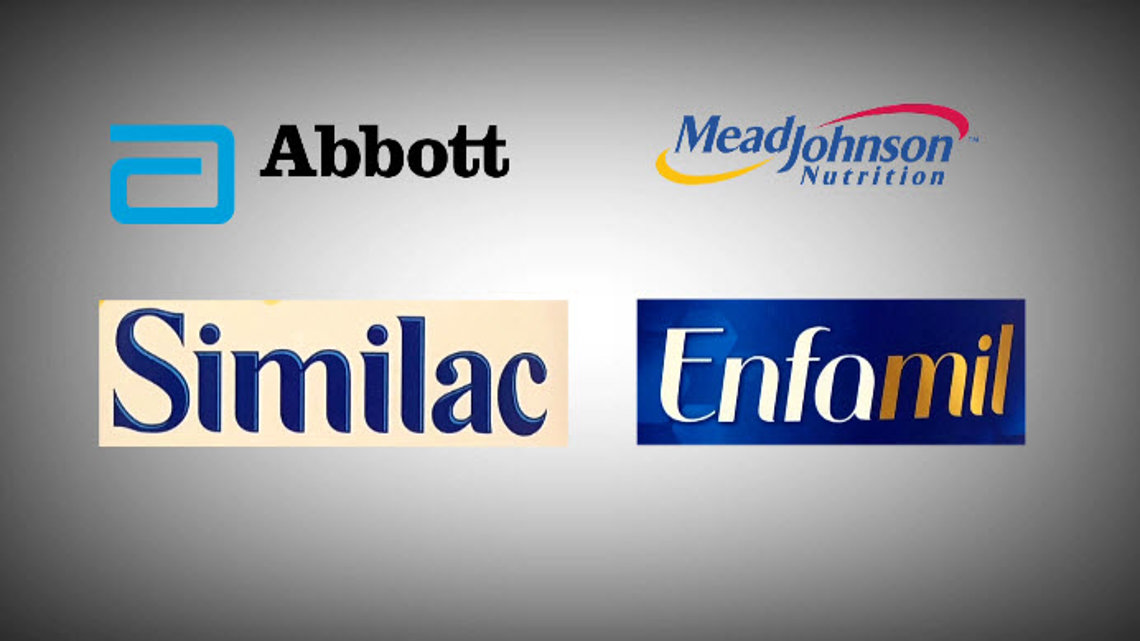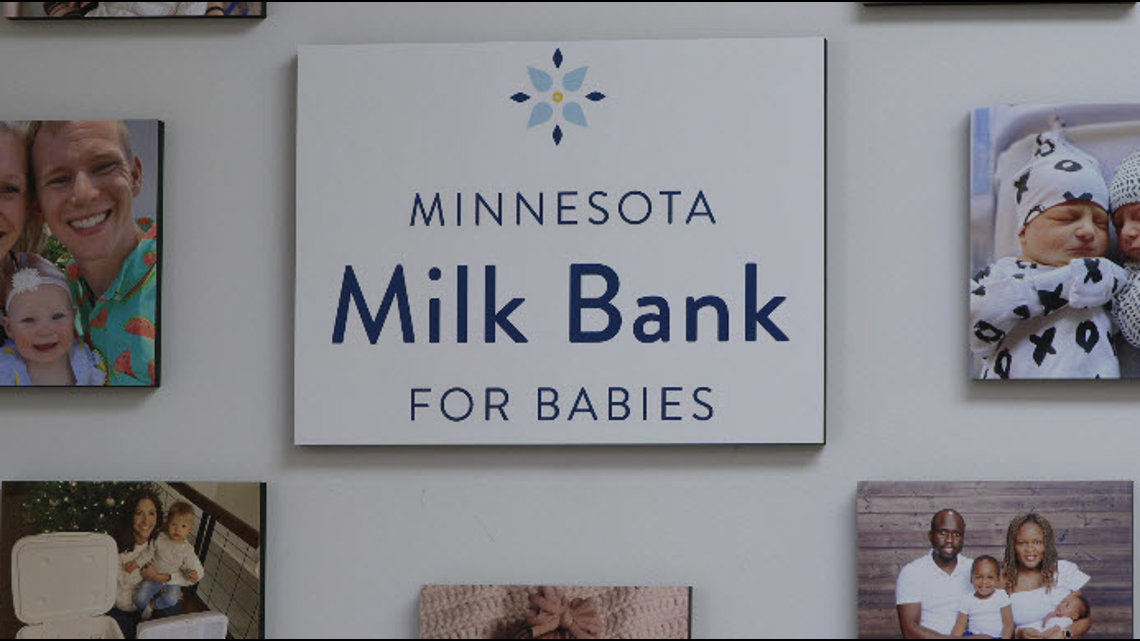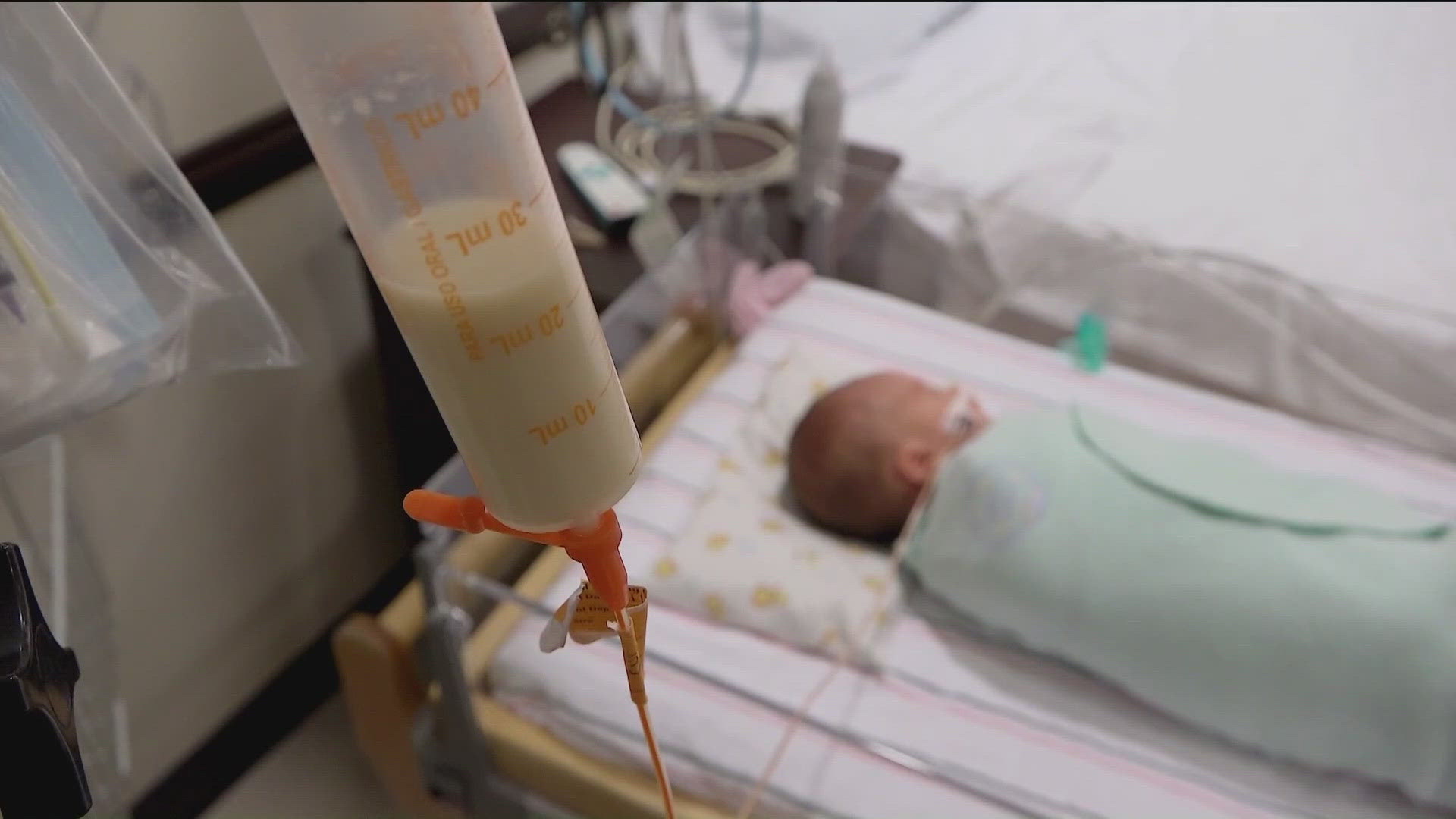WEST ST PAUL, Minn. — Marie Smith still has her daughter Amirea’s baby clothes and blanket carefully packaged in a plastic container. When she squeezes it, she says she gets a bit of the newborn’s smell.
The clothing, the journal she kept and the album full of photos bring her back 18 years to the two weeks Amirea spent in the hospital before falling victim to a devastating disease for preemies called necrotizing enterocolitis, often known as NEC.
“This is a feeling I would not wish on anyone,” she said.
Marie is reliving the pain of that time as a plaintiff in a lawsuit against baby formula-makers Mead Johnson and Abbott Laboratories, the producers of Enfamil and Similac formula products. The lawsuit, along with hundreds of others filed by parents across the nation, alleges the companies failed to warn parents of the increased risk of NEC in premature infants who are fed popular formulas derived from cow’s milk.


They say those formulas are harder for newborns to digest than mother’s milk – especially if a premature baby’s digestive system isn’t fully developed.
“The evidence is overwhelming”
The first of those lawsuits went to trial earlier this year in Illinois. A jury ordered Mead Johnson to pay $60 million to the mother of a premature baby who contracted NEC after being fed Enfamil formula.
“The evidence is overwhelming that Mead Johnson has known literally for decades that its premature infant product, cow’s milk-based product, is significantly increasing the risk of necrotizing enterocolitis,” said Steve Reck, an attorney who has also filed lawsuits against formula manufacturers.
He called the verdict “a bellwether” for other cases still making their way through the courts.


The evidence Reck cites includes studies dating back to 1990, showing a significant increase in the risk of NEC in preemies who were fed formula rather than human milk.
By 2012 the American Academy of Pediatrics warned “all preterm infants should receive human milk,” advising that it could be either “mother’s own milk” or “pasteurized donor milk.”
Yet, the companies do not include that information on their packaging. The lawsuits allege that some of the products are labeled “human milk fortifier,” which they claim is deceptive advertising.
Both companies dispute the findings and Mead Johnson plans to appeal the recent verdict. In court filings, Mead Johnson argues they “expressly deny that the medical and scientific community has confirmed any link between NEC and any infant nutritional products containing cow’s milk.”
In an email, Mead Johnson said:
Mead Johnson stands by the safety of our products. We strongly reject any assertion that any of our products cause NEC.
NEC is unfortunately a well-known disease affecting premature babies and is most prevalent in preterm infants with very low birth weights.
Mead Johnson products provide lifesaving nutrition options to expert neonatologists and health care professionals caring for vulnerable premature infants. These products are used under strict supervision in neonatal intensive care units when human milk (either from the mother or a donor) is unavailable or not nutritionally sufficient. They are part of well-established feeding protocols widely accepted by hospitals in the delicate care of premature babies.
We believe that the science, and experts in the medical community, do not support the plaintiffs’ allegations.
Abbott sent KARE 11 the following statement:
Premature infants, particularly those born at early gestational ages and low birth weights, are susceptible to a variety of serious health issues, including challenges eating, gaining weight and fighting off infections. Specialized formulas and fortifiers are considered part of the standard of care by the medical community and, along with human milk, are the only options to feed premature infants.
These cases seek to advance a theory promoted by plaintiffs’ lawyers that has no basis in science and is not supported by the medical community. The allegations are without merit.
Amirea’s fight with NEC
Marie’s daughter Amirea was born on Feb. 12, 2006, at 32 weeks at North Memorial Hospital in Robbinsdale. Though premature, Marie says Amirea was initially healthy enough to stay out of the ICU.
“She was perfect to me,” Marie recalls.
Because the baby was born early and by C-section, Marie says she initially she didn’t produce much breast milk. But she continued to pump and eat according to doctors’ orders, and eventually she produced milk for her daughter. However, it wasn’t as much milk as doctors felt Amirea needed.
Marie says she hoped the hospital would discontinue formula feeding. However, staff told her they were using the formula as “filler.”


Flipping through the pages of her photo album, Marie says she can see when Amirea took a turn for the worse. A week into her life, she still hadn’t produced a stool and her belly became distended. Doctors told Marie her daughter had NEC and would need intestinal surgery.
“My stomach twisted in knots, my world flipped upside down,” she recalls.
The surgery was unsuccessful, and doctors informed Marie her daughter likely would not live. She held Amirea just once before the baby passed away on March 1.
She says it was only after Amirea died, that a doctor told her about the increased risk of NEC in formula fed babies.
“I feel like people have been lied to,” she said.
Preventing NEC
Neonatologists caution they cannot say that formulas based on cow’s milk directly cause NEC.
“There’s not one single cause, there are a number of causes. Sometimes they all combine to cause the disease,” said Dr. Ravi Patel, a neonatologist at Emory University who has studied the illness. He points out that even premature infants who are breast fed can get NEC.
But he says doctors do know how to reduce the risk.
“We do know one of the best ways to prevent NEC is by providing breast milk and breastfeeding,” Patel explained. “Or when that’s not possible, to give donated human milk, which has been shown as a very effective way to prevent the disease.”


At one Atlanta hospital, NEC cases dropped by 77 percent when they switched to using only human milk for premature infants.
“All babies should have access to this,” says Linda Dech, executive director of Minnesota Milk Bank for Babies.
Minnesota Milk Bank for Babies collects and pasteurizes donor milk to deliver to hospitals. Dech says demand for donor human milk has increased dramatically. They are generally able to meet that need with the priority being medically fragile babies in the NICU.
“Research has shown that human milk is protective against diseases like NEC,” she says.


Dech says the price of human milk is still more expensive than formula and can be prohibitive for some families, especially since she says commercial insurance coverage for human milk can be “spotty.”
Progress was made in Minnesota in December 2023 when the state’s Department of Human Services revised guidelines for the state’s Medicaid program to include coverage of donor human milk for babies with a medical need.
Fighting for her daughter
Marie says all those years ago, donor human milk wasn’t offered as an option for her. When she first heard about lawsuits against formula makers, she was stunned premature babies were being fed cow’s milk-based formula.
“I’m like, 'This is still happening?'” she said. “My story needs to be told.”
She says she signed on to the suit knowing that no verdict would bring Amirea back. Still, she hopes her story and her pain may increase knowledge of the increased risk and spare another family the same fate.
KSDK reporter Christine Byers contributed this story.
WATCH MORE ON KARE 11+
Download the free KARE 11+ app for Roku, Fire TV, Apple TV and other smart TV platforms to watch more from KARE 11 anytime! The KARE 11+ app includes live streams of all of KARE 11's newscasts. You'll also find on-demand replays of newscasts; the latest from KARE 11 Investigates, Breaking the News and the Land of 10,000 Stories; exclusive programs like Verify and HeartThreads; and Minnesota sports talk from our partners at Locked On Minnesota.
- Add KARE 11+ on Roku here or by searching for KARE 11 in the Roku Channel Store.
- Add KARE 11+ on Fire TV here or by searching for KARE 11 in the Amazon App Store.
- Learn more about the KARE 11+ app for Apple TV in the Apple App Store.
- Learn more about KARE 11+ here.
Watch more KARE 11 Investigates:
Watch all of the latest stories from our award-winning investigative team in our special YouTube playlist:

